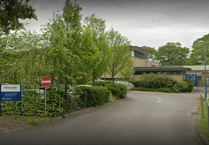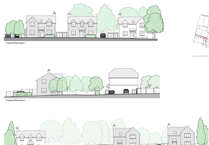Much has been written on national housing problems over recent months and years.
The same issues come up over and over again. Targets for housebuilding have not been met. Developers have failed to build on sites where planning permission has been granted, and insufficient affordable housing has been built.
Where new houses have been built there has been a lack of new infrastructure to support the people living in them, such as schools, medical facilities and decent transport links.
Nor, despite all the publicity about net zero have there been adequate energy standards for new builds. Private renters, many of them with families, still do not have adequate protection in law from eviction.
None of these problems will be solved, or indeed reduced, until there is a change of government.
Locally the situation is no different from nationally. It is true that Waverley Council has not been meeting housing targets, but they would have if the houses they have given permission for were actually built – such as at Farnham East St, which has been an eyesore for years now, and the Dunsfold site.
Another major issue locally is the lack of infrastructure to support the massive new developments, particularly in Bordon: where are the shops, medical facilities and schools for the people who have already moved in and why should they have to put up with repeated road works for sewers, electricity and gas?
Housebuilding targets will not be met as long as the Government relies primarily on private development to decide whether houses should be built: it is not in the interests of these companies for housing supply to match demand as prices would fall and so would their profits.
They sit on sites with planning permissions because there are no penalties in the system for delays. And by pleading their need for ‘viability’ they reduce the number of affordable houses, so there will never be enough built.
Oh – and with house prices reducing because of interest rates these problems will only get worse.
The Conservative Government tries to give the impression it is working hard to address the issues. It creates ‘Help to Buy’ – but this has massively increased developer profits and actually increased prices.
It hammers Local Government (Farnham and Waverley in particular) for failing to keep up with the housebuilding in Local Plans – when there are sufficient permissions granted – but Councils have no power to compel the developers to build. Only national government can do that.
There are solutions to these problems if we could only have a government which is genuinely wanting to address them.
At their recent Conference, the Lib Dems approved policy to do just that. They would set a target of building 150,000 social homes a year, including new Council houses. They would give councils the power to borrow to build, and the power locally to stop the ‘Right to Buy’ which undermines the financing of new builds. (If you are going to sell off new homes in the future at less than market price who will lend you money to build them).
They would gradually lower council rents to genuinely affordable levels. They would plan to build ten new garden cities which would allow significant new housing without the relentless expansion of existing towns.
They would introduce new regulations to force developers to pay council tax on any homes which have not been built within an agreed time after planning permission has been granted.
They would ensure that public services and infrastructure are in place before residents move into a new development.
They would scrap ‘Section 21’ no-fault evictions of private renters. And finally they would require higher minimum energy standards for new builds, involving solar panels and heat pumps or other low carbon sources.
It is good to note that these policies do overlap with some of Labour’s plans. However, Keir Starmer’s promise that Labour would ‘bulldoze through’ the UK’s ‘restrictive planning system’ is worrying.
In contrast the Lib Dem policy stresses the need for community involvement in planning.
As a councillor for ten years involved in planning decisions, I think the system tries to do a good job balancing different interests, opinions and constraints which inevitably arise when making permanent changes to our environment.
Significant changes are needed, as suggested here, but this is not the same as bulldozing restrictions away: many of them are there for good reasons. We still need our green spaces.
Stewart Edge
Farnham Liberal Democrats





Comments
This article has no comments yet. Be the first to leave a comment.